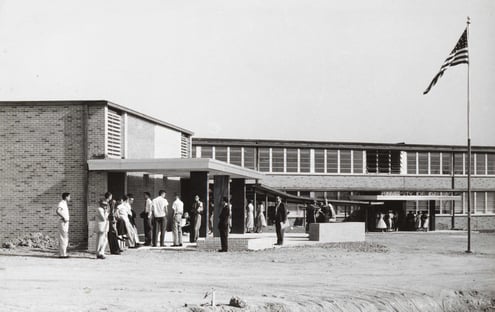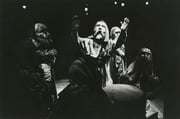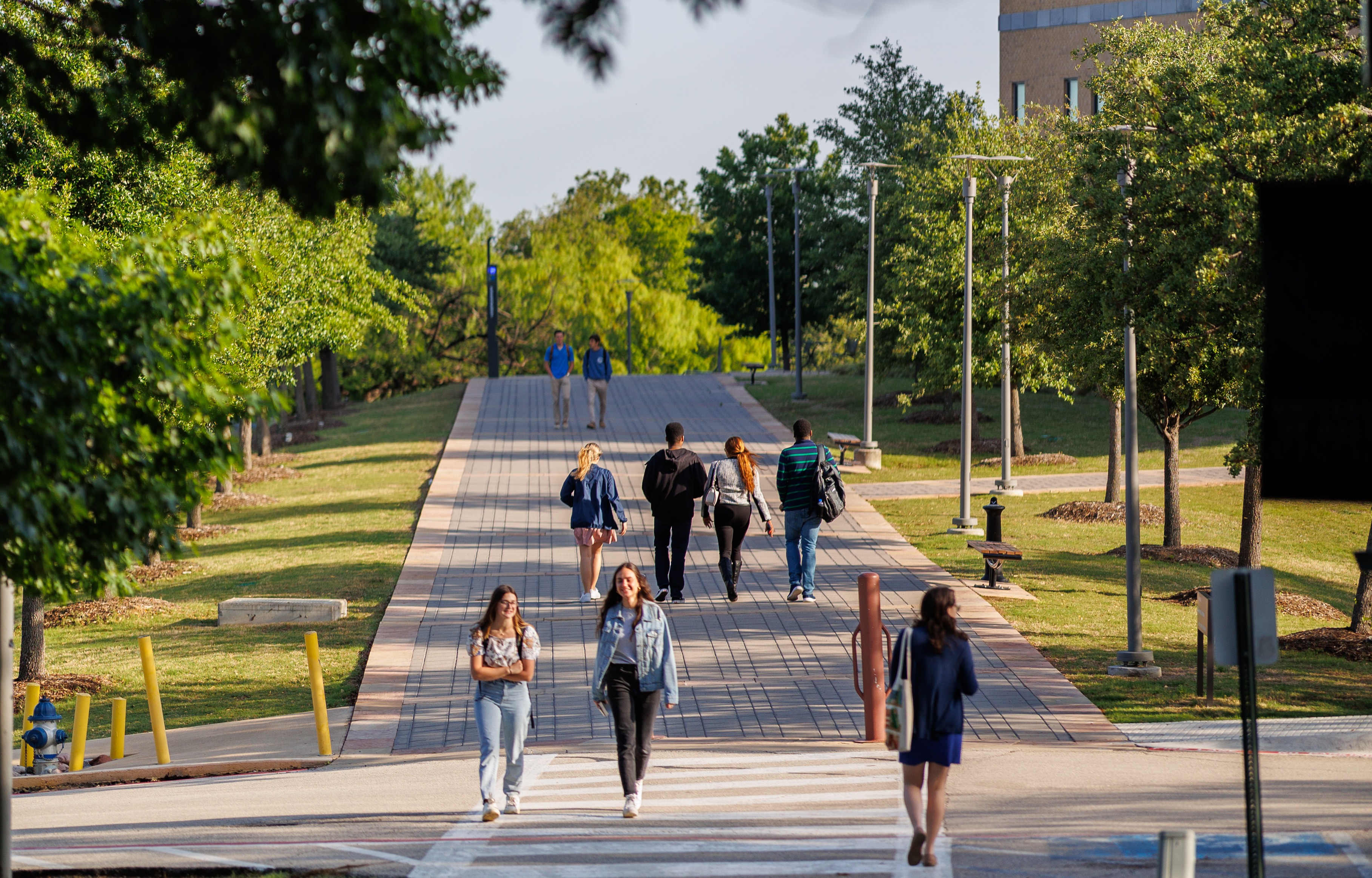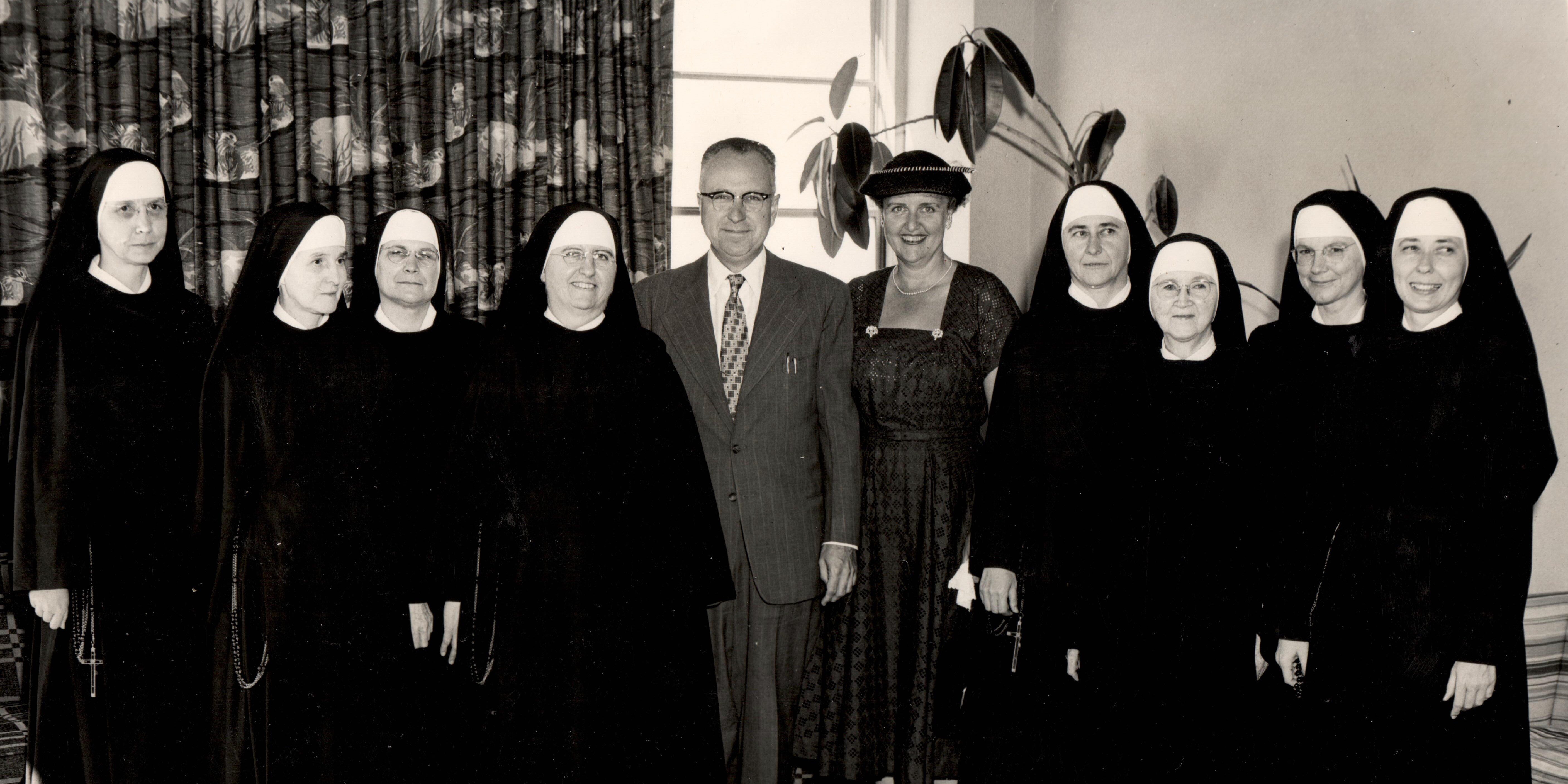Dean of Students Greg Roper, PhD, BA '84, kicks off Disorientation 2023.
Liberty vs. License
The only true freedom, the only freedom that can truly satisfy, is the freedom to do what we ought as human beings created by God according to His plan. It is the freedom to live the truth of what we are and who we are before God, the truth of our identity as children of God, as brothers and sisters in common humanity.
— Pope St. John Paul II
I love bacon. Mmmmmmm … crispy or chewy, delicious to smell and crunch and savor. Baaay-connn. But when I was a kid, my family didn’t have a lot of money, so to save, my mom would take a knife and cut the bacon in half. We’d get two half-strips of bacon on our plate. But my mom was a genius: She just called them “two pieces of bacon.” We got two pieces and were happy with them. I never knew the difference.
Flash forward to age 22, and I’m living in my first apartment, alone. I go to the store, buy a pound of bacon and, without thinking, cut it in half and serve myself two half-strips of bacon. Suddenly a thought hits me: I don’t have to cut the bacon! I’m an adult living on my own. I can do whatever I want to do! I can eat two whole strips of bacon! But wait: Why stop at two? I cook four strips of bacon and chow down. But then a new thought hits me: Why stop at four? I cook an entire pound of bacon and sit there, on a Saturday morning, stuffing my face. Because I can. Because I am an adult, and I am free to do Whatever. I. Want. To Do.
That, ladies and gentlemen, is what the philosophers call license: an idea of freedom that means “free of all restraints,” freedom as in “doing whatever you want to do.” Freedom from limitation is just about all that most people think of when they hear the word “freedom.” And in some ways, that was true. I was 22 years old: I had my own apartment, a new situation in grad school, a small income from a side job. If I wanted to eat a pound of bacon in one sitting, there was no one to stop me. But in other important ways, it was — and is — one of the biggest lies of all. Sure, I was free to eat as much bacon as I liked. I was free to do that every day if I wanted. I was also free, therefore, to get fat and clog my arteries.
You see, choices have consequences. Nature is like that. The natural consequences of your actions always end up playing out, whether you want them to or not.
Drink too much? The natural consequence is to have a crashing headache the next day. Have sex with someone? You’re likely to experience the consequences there, too: emotional entanglements (for good or bad), pregnancy, babies, 2 a.m. feedings and a whole host of parental responsibilities. A friend of mine who is a baseball fan puts it this way: “Nature always bats last.” Just as in a baseball game the home team always has the last at-bat, in reality, nature always gets the last laugh. There’s no such thing as choices without consequences.
But I’d have you consider another conception of freedom: what the philosophers call liberty (or “ordered liberty”). If “license” means “doing whatever you want, damn the consequences,” liberty means freely choosing to pursue the good.
Huh? The good? Yeah, the good.
I don’t mean anything sophisticated or fancy. I just mean the good of having healthy arteries, of being a healthy weight, and so on. When we freely choose to pursue these longer-term goods, we are exercising our liberty. We are ordering our freedom toward our ultimate good. Genuine liberty is not just freedom from restraint, but freedom to choose what is, in the long run, best for us, even if in the short term we have to choose to restrain the desires of the moment.
When we order our liberty toward the good — the good of health, say — we do things to achieve that good: We exercise, we eat right, we avoid foods that will make us fat and unhealthy. Some of that’s not fun in the moment. But the person who has a healthy weight, who can lift heavy things and move quickly without getting winded, who isn’t always worn down, is freer than the person who does not — the healthy, fit person is free to do more with her body than someone who is unhealthy and unfit: She is free to go on a hike, climb a cliff face, help herself in a dangerous situation. Ordered liberty leads to greater freedom. So we freely choose to do things like exercise regularly, not because someone made us do it, but because, in desiring a goal, we desire also the things that will lead us to that goal.
Now here’s the thing: While liberty leads to greater freedom, license always leads to slavery.
You think at first that it’s cool to do something a little license-y, but the more you choose things that aren’t leading to your good, the more they lead you to the bad, and the more you get hooked on them. Someone who exercises license over and over again with alcohol? We call him an alcoholic. Someone who habitually exercises the license of looking at pornography? An addict. Someone who eats ice cream to excess, night after night? Overweight to the point that he can’t use his body with any exertion. That’s not freedom; it is limitation. It is slavery.
That day, many days ago — my day with bacon — I learned something about myself: I wasn’t very thoughtful about how I was using my newfound freedom, a freedom that happened upon me suddenly at age 22, in my own apartment. Of course it wasn’t just about bacon. It was about beer. It was about young women. It was about what I thought, and did, in my free time. It was about how I treated other people.
One of the great lessons of the UD Core concerns the difference between liberty and license. You can find it in Lit Trad I; you can find it in your politics classes; you will explore it in Philosophy and the Ethical Life; you find it especially in Dante’s Divine Comedy and Milton’s Paradise Lost and Shakespeare’s Macbeth and Melville’s Moby-Dick and Dostoevsky’s Crime and Punishment.
The question is, how long will it take you to learn this lesson, to start applying it to your life? I had thought I was pretty good about all this until I sat there, bacon bits clinging to my lips, a pound of fatty pig inside me, starting to make my stomach churn.
When you get to college, you are likely freer than you’ve ever been before in your life. Are you going to think of it as freedom from all restraint and go wild? Or are you going to start thinking in terms of freedom to, and choose freely what will lead to the best you?
It’s your free choice.




